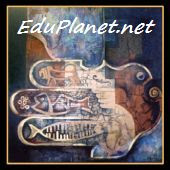What are some other important Haggadic works?
taken from http://www.faqs.org/faqs/judaism/FAQ/03-Torah-Halacha/section-31.html
Answer:
Megillat Ta'anit
A list from the time of the Second Temple describing 36 days on which fasting is not permitted because of the joyous events that occurred on those days. The main text is from the 1st century, while the commentary is post-Talmudic.
Seder Olam Rabbah (Seder Olam)
Traditionally written by Tannaitic Rabbi Yose ben Halafta. It covers topics from the Creation to the construction of the Second Temple.
Seder Olam Zutta
This book draws up a list of 89 generations from Abraham to the exile, and then to the Talmudic period. Not written before the 8th century.
Pirkei de Rabbi Eliezer (Baraita de Rabbi Eliezer)
Contains 54 chapters on the life of Rabbi Eliezer, and most of the Torah. It is nor a midrash in the real sense of the word, but is more a coherent biblical story. Dates from the 8th century.
Josippon
A history of the Jews from the fall of Babylonia to the destruction of the Second Temple. Written in 953 CE by an anonymous author in Southern Italy, based on many historical records, but mainly the works of the Roman Jew, Josephus.
Sefer haYashar (Toldot Adam)
"The Book of The Upright" presents a view of history from Adam and Eve to the Exodus from Egypt. Written sometime between the 12th and 16th centuries.
Mesillas Yesharim
Mesilas Yesharim is a guide to character improvement written by Rabbi Moshe Chaim Luzzato (a/k/a the Ramchal, after his initials). He lived in the 18th cent, born in Italy but spending most of his life in Amsterdam. Professionally, he was a gem cutter.
The Ramchal bases the structure of Mesilas Yesharim on a progression of personality traits listed by the tanna (mishnaic era rabbi) Rabbi Pinchas ben Ya'ir (quoted in Tr. Avodah Zarah 20a). For each trait, he has one chapter defining the trait, sometimes he has a second defining subcategories of it, and finally advice for how to acquire it. The Ramchal starts with Watchfulness, and makes his way to aquiring Holiness. A complete translation can be found at: [5]http://www.shechem.org/torah/mesyesh.

No comments:
Post a Comment